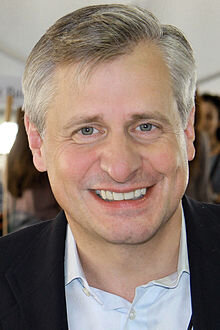In this book, “Thomas Jefferson: The Art of Power,” Meacham details Jefferson’s public life between 1776 and 1826, covering the events with anecdotes, quotes, and observations that show all sides of the complicated leader.
The book, pages 514 through 759, consists of notes, a bibliography, and an index. When one-third of the book is research, you can not help but expect to learn things you didn’t know, and this book does not disappoint.
The book does not dwell on the reality of Jefferson, the enslaver, and how that fit with the people reforming principles that guided his career. His use of the phrase "We hold these truths to be self-evident that all men are created equal, that their Creator endows them with certain unalienable Rights, that among these are Life, Liberty and the Pursuit of Happiness” was also balanced with his concern that the masses might not rise to the occasion freedom would give them.
Having balanced views allowed him the flexibility to adjust to achieve his goals. It is easy to understand that the subtitle, the “art of power,” refers to Jefferson’s manipulation skill. Jefferson was a politician and philosopher fascinated by the power and obsessed with change.
His skills brought about significant change in the country’s direction at a time when it made a great deal of difference to what America was with the acquisition of the state of Louisiana, the Lewis and Clark expedition, and the beginning of the colonization of the American West.
Jon Meacham personally recounted insights into the political thinking and career of America’s third president at an event hosted by Politics and Prose Bookstore in Washington, DC.* He examined Jefferson’s relationship with political power. He reported that despite his solid beliefs and opposition to confrontation, Jefferson successfully led the country in a highly partisan political environment. He summed up some of Jefferson’s views: “the duty of a magistrate is to the line of the law, but it is not the highest duty. The survival and success of the country are your highest duty and obligation. One person’s imperial presidency is another person’s hero. One person’s tyranny is another person’s brilliant reform. Part of what we have to struggle with from age to age in America realizes that in some generations, there will be an excess of power used in a way we approve. In some generations, there will be an excess of power used in a way we would fight to the death against, but that is the way history has unfolded, and Jefferson was on the right side of that in the very beginning.”
*recorded on C-Span. (see click here to link)






